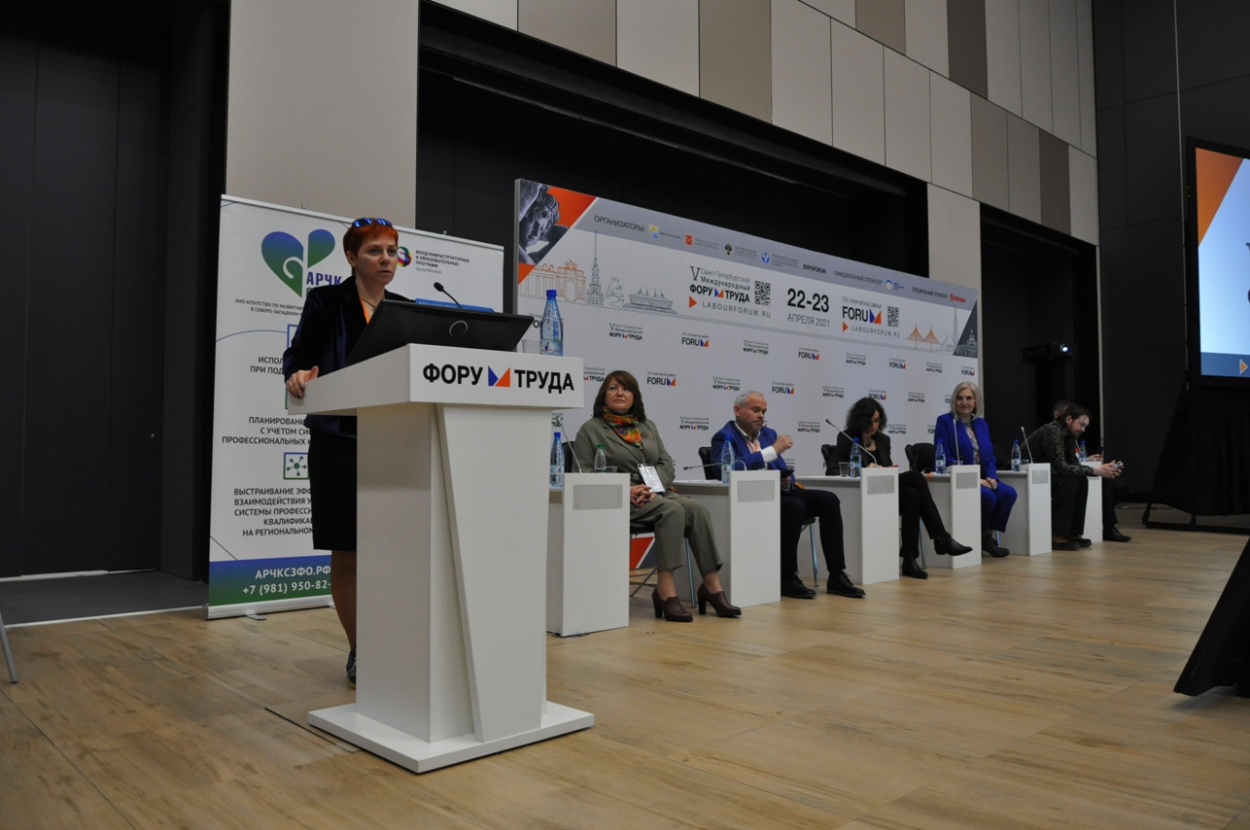The Labour Forum: How to build up an ideal team to solve a technological task

How to build up an effective team to run a hi-tech project? How to train newly employed workers? How to retrain experienced workers? These are the questions discussed by universities, organisations, and the public sector at the session ‘Teams 4.0 — There is a solution!’ at the 5th St Petersburg International Labour Forum.
The discussion was opened by Angelina Volkova, Director of the Department of Developing Professional Qualifications at the Fund for Infrastructure and Educational Programmes at the RUSNANO Group. Opting for St Petersburg to build a candidate pool is not a fluke, she said. ‘St Petersburg has an incredible research and academic potential. It is home to top universities. The technology that is being developed by the Fund is aimed at bringing together universities and employers,’ said Angelina Volkova.
Maiia Rusakova said that we needed to operationalise soft skills to ensure effective search for employees to work in a team. Maiia Rusakova is the Director of the Sociological Clinic of Applied Research and Associate Professor in the Department of Applied and General Sociology at St Petersburg University. The University studied the labour market and showed that unemployed people in the job market tended to find it difficult to adapt to ever changing conditions that prioritised lifelong learning and learning by doing.
The universities do prepare high calibre specialists, yet they fail to have basic soft skills, she said.
Employees may have amazing opportunities and knowledge. Yet they fail to fit into the team. It is critical, primarily due to time pressure. It is crucial to describe each word to operationalise hard skills, soft skills, competences, and requirements for candidates.
Maiia Rusakova, Director of the Sociological Clinic of Applied Research and Associate Professor in the Department of Applied and General Sociology at St Petersburg University
Today, universities are actively adopting the teaching methods that focus on soft skills, she said. This may be achieved through research opportunities. Universities carry out research projects to bring the results into practice in the organisations that ordered the projects. Additionally, academic staff can join different teams for training. Another way to teach soft skills is non-degree academic programmes. ‘Presumably, we should focus on analysing the current professional standards and introducing new ones in designing our academic programmes to ensure that they work as a construction set. When it comes to adult professionals, we need to understand whether we have to teach skills on the basic level or intermediate and advanced levels. Unfortunately, analytics may be nothing without a human factor as the assessment schemes, say, tests, depend on a wide range of factors,’ said Maiia Rusakova.
Sergei Miakishev, Minister of Labour for the Murmansk region, spoke about how they prepared specialists to accommodate the needs of the region during labour market transformations caused by migration and the consequent decline in population. Oleg Melnik is the Director of OOO Rosizolit and represents small- and medium-sized business. He said that we should be able to respond promptly to emerging labour shortages. Additionally, he said that the public sector should support business in the delicate process of to how to build up a team for business.
Olga Chernaus spoke about how they built up teams in the Employment Centre at St Petersburg. She is the Head of the Office for Professional Self-Determination and Career Growth in the Employment Centre at St Petersburg. Anna Faktorovich spoke about how they developed a model that represented a full scheme to provide staff for research projects. She is the Deputy Director of the National Agency of Qualification Development.
Pavel Kozlovskii represented Peter the Great St Petersburg Polytechnic University. He spoke about the results of the academic intensive course that was aimed at ensuring digital transformation undergone by the organisations in the region.
Sergei Ilin, Deputy Director of the Engineering Centre for Microtechnology and Diagnostics at LETI, spoke about how to design the profession of the future and balance expertise, hard skills, and soft skills.
Andrey Komissarov, Head of Data-Driven Development Department, University 20.35, spoke about how data analysis helped to build up project teams.
Dmitrii Cherneyiko, Chairman of the St Petersburg Committee for Labour and Employment, summed up the results of the meeting by drawing attention to the need to create a model of the digital twin of the labour market and forecasting the needs that organisations might have in ensuring balanced training for staff.

